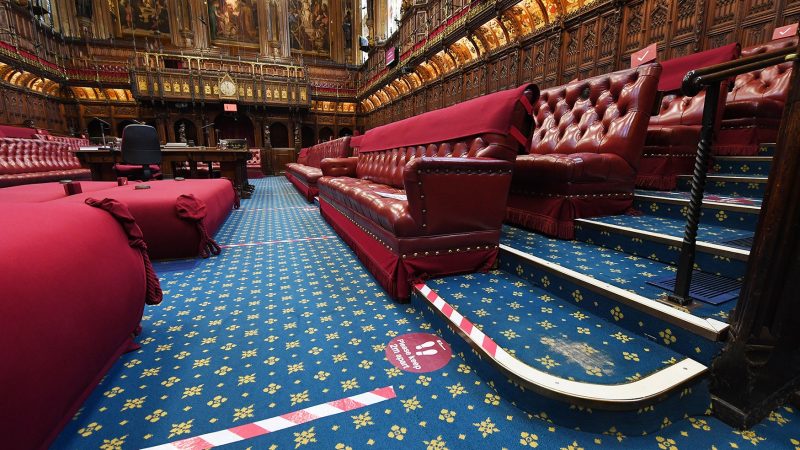
The government has been defeated in the House of Lords as peers backed a Labour-led move to block the introduction of a presumption against prosecution for war crimes, crimes against humanity, genocide and torture.
The overseas operations bill is a controversial piece of legislation brought to parliament by the government that has faced cross-party resistance – though not enough to prevent its passing by MPs last year.
It proposes a ‘presumption against prosecution’ of service personnel accused of committing a crime overseas, with the exception of sexual offences, if more than five years have passed since the alleged offence took place.
Labour peer George Robertson today moved an amendment in the Lords to ensure that the presumption against prosecution does not apply to war crimes, crimes against humanity, genocide or torture. It was passed by 308 votes to 249.
In advocating for the amendment – also signed by crossbench peer David Alton, Labour peer Alan West and Liberal Democrat peer Menzies Campbell – Robertson criticised the “obduracy of ministers” in their approach to the bill.
The Labour peer said he had been affected by an “uncharacteristic naivety in thinking that the government, faced by almost universal and expert opposition on this aspect of this bill, would have changed its mind by now”.
He added that the Lords needed to ask MPs to “look again, reflect and change the government’s mind, before lasting and serious damage is done to the interests of our armed forces and indeed to the reputation of this country”.
“The bill doesn’t do what it claims to do, and instead does actual harm to those that we seek to protect. At best, it would prevent only 1% of prosecutions, but it would not prevent seemingly endless investigations,” Robertson said.
The bill would “single out our armed forces for a privileged protection previously unknown to British law”, he told peers, creating a “two-tier justice system where troops acting for us abroad would be treated differently from other civilians in society”.
Labour has said the bill “creates the risk that the very gravest crimes including torture and other war crimes go unpunished” and “will do nothing to protect veterans”. It abstained at second reading in the Commons but voted against at third.
Peers also backed, again by 308 votes to 249, a cross-party amendment put forward by Liberal Democrat Martin Thomas, Labour’s Charlie Falconer, crossbenchers Michael Boyce and Richard Dannatt, a retired senior British Army officer.
The change to the bill sought to ensure investigations are timely and effective, and to stop “delays, shoddy investigations and reinvestigations” from casting “a shadow over serving members of the armed forces and veterans”.




More from LabourList
Government announce SEND reform in schools white paper
SPONSORED: ‘Industrial hemp and the challenge of turning Labour’s priorities into practice’
‘A day is a long time in politics, so we need ‘action this day’’